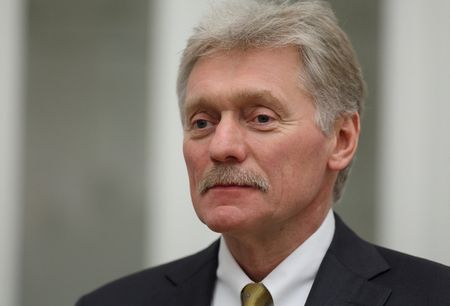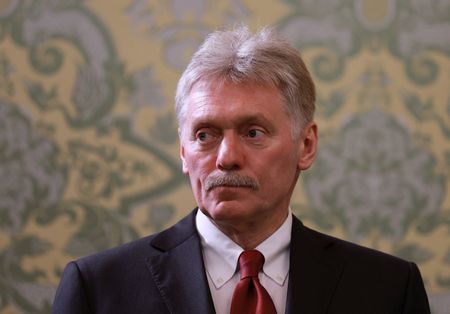By Yadarisa Shabong and Josephine Mason
(Reuters) – Unilever surprised investors on Tuesday by ousting chief executive Hein Schumacher and replacing him with finance chief Fernando Fernandez, who will focus on speeding up the execution of the consumer group’s turnaround strategy.
Unilever’s board, which includes billionaire activist investor Nelson Peltz, was unified in its decision to oust CEO Schumacher, a source familiar with the board’s thinking told Reuters.
Schumacher was surprised by the move, but the decision involved “nothing untoward”, the person said.
In an email to associates, Schumacher defended his approach and record as CEO and said he regretted leaving the company earlier than anticipated.
“The board is eager to step up the pace of our strategy execution and realise swift value creation underscored by a change in leadership,” he said in the email, which was shared with Reuters.
The CEO’s sudden departure after less than two years in the job hit Unilever’s shares, which fell as much as 3.4% on Tuesday. They had gained more than 9% since Schumacher took the helm on July 1, 2023.
The consumer goods industry has had a difficult time coping with a supply chain crunch triggered by the COVID-19 pandemic, plus sky-high commodity prices and an energy crisis after Russia invaded Ukraine.
Profit margins have been squeezed and sales volumes hit by consumers switching to cheaper options.
Unilever, which gave no specific reason for the CEO change, is facing pressure from investors to revitalise its fortunes and the top management upheaval comes just weeks after Unilever announced underwhelming full-year earnings.
Nestle CEO Mark Schneider was ousted last year after several quarters of weak sales volume growth.
Unilever’s management change was made after a board meeting on Monday, another source familiar with the matter told Reuters. The board concluded that Fernandez, who has been with Unilever for nearly 40 years, was the right person to execute the company’s strategy, the source said.
Schumacher’s appointment and strategic changes had been welcomed by Peltz, who built a stake in the company in 2022 and sits on Unilever’s board.
“We are gobsmacked at the news that Unilever’s very highly regarded CEO Hein Schumacher is to step down,” RBC Capital analyst James Edwardes Jones said in a note.
When Schumacher became CEO, analysts and investors had applauded the choice of an external candidate as CEO.
Schumacher reset the group’s strategy to address years of underperformance and laid out cost cuts last year, including plans to separate its ice cream division and cut thousands of jobs.
The company has tried to step up the pace of asset sales, although some categories, like plant-based meat, are proving hard to exit.
Chairman Ian Meakins said the board was impressed by Fernandez’s “decisive and results-oriented approach”, and had given him the task of executing the growth strategy.
“There is much further to go to deliver best-in-class results,” Meakins said in a statement.
EXECUTION
Analysts and investors said the news was unexpected, but Fernandez was a good choice to lead Unilever’s turnaround strategy.
“We agree with the board that Fernandez is best placed to accelerate the value unlock,” Barclays analyst Warren Ackerman said in a note.
UBS analyst Guillaume Delmas said “execution is key” in the new phase of the company’s strategic journey.
Fernandez, 58, has been with Unilever since 1988. Before he became CFO last year, he held a number of roles such as President Latin America and CEO Brazil and President of the Beauty & Wellbeing business.
Harsharan Mann in the Global Equities team at Aviva Investors, a Unilever shareholder, said: “We were surprised by the announcement but have a positive view of the CFO … He is a 30-year veteran of the business who ran the Beauty and Wellbeing division very well.”
In January, Fernandez took up extra responsibilities including overseeing supply chain and procurement.
Unilever, which owns Hellmann’s mayonnaise, Dove soap and Ben & Jerry’s ice cream, said there was no change to its 2025 outlook or medium-term forecast and the board was committed to “further accelerating” Schumacher’s growth plan.
Schumacher, 53, will step down as CEO in March and leave the company on May 31. He is leaving by mutual agreement, the company said.
He will be treated as a “good leaver” and will continue to get his 1.85 million euros ($1.94 million) fixed pay until he leaves the business, the company said. He will then get an undisclosed payment for the remainder of this notice period, it said.
Srinivas Phatak, currently Unilever’s deputy chief financial officer and group controller, will become acting CFO, while the company looks for a permanent replacement.
($1 = 0.9549 euros)
(Reporting by Yadarisa Shabong in Bengaluru and Josephine Mason in London; Editing by Mrigank Dhaniwala, Kirsten Donovan and Jane Merriman)











